
Part 2 MARK STATMAN: MEXICO AND THE POETRY OF GRIEF AND CELEBRATION
Part 2 of my interview with Mark Statman looks closely at Mark’s Latin American poetic influences, his life in Mexico and ends with an extract
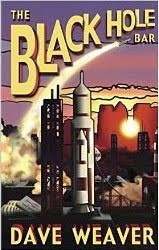
Science fiction isn’t all spaceships and star systems; it’s about the inner demons of the mind as well – Dave Weaver.
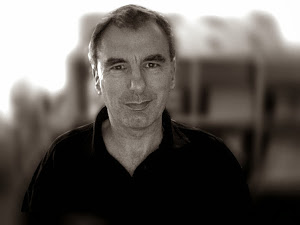
After appearing together at Banbury Literary Live, I asked Dave Weaver, author of two science fiction/fantasy novels and three collections of futuristic short stories, if he would answer a few questions about his writing. Dave, who is chair of Verulam Writers’ Circle, describes his writing as ‘about the weirdness of everyday living’ and ‘a little on the stranger side of life’.
Leslie: Your novel The Black Hole Bar has been compared to Chaucer’s Canterbury Tales or Boccaccio’s Decameron. Can you explain the similarities and the differences, please?
 Dave: The Black Hole Bar has a similar scenario to the Chaucer and Boccaccio stories in so far as it mixes very different characters who amuse us and each other by telling tales. But these raconteurs are not pilgrims, nor are they hiding from a plague – Simon is on his way by rocket to Titan, rather than on horseback to Canterbury; the tavern is the Black Hole Bar, although being high up on Level Five of Docklands Spaceport it isn’t too far from Southwark; the tales are not told by a knight, squire, nun, merchant, clerk, parson, franklin or manciple, but by a programmer, advertising copywriter, dancer, financier, customs officer, marine biologist, sports star, and port worker.
Dave: The Black Hole Bar has a similar scenario to the Chaucer and Boccaccio stories in so far as it mixes very different characters who amuse us and each other by telling tales. But these raconteurs are not pilgrims, nor are they hiding from a plague – Simon is on his way by rocket to Titan, rather than on horseback to Canterbury; the tavern is the Black Hole Bar, although being high up on Level Five of Docklands Spaceport it isn’t too far from Southwark; the tales are not told by a knight, squire, nun, merchant, clerk, parson, franklin or manciple, but by a programmer, advertising copywriter, dancer, financier, customs officer, marine biologist, sports star, and port worker.
Leslie: Why is the novel you wrote before that called Japanese Daisy Chain?
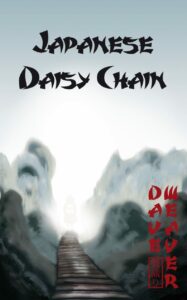 Dave: The book is a collection of linked stories which start and end at the same event but with very different point of view and a shattering conclusion that throws a different light on what the reader thinks has happened in the first story. In the linked stories a participant on each occasion, a minor character if you will, becomes the main protagonist in the next, creating a human daisy-chain. Just like a daisy-chain, what goes around comes around. The chain is completed and we finally understand the karma of the events of the first story.
Dave: The book is a collection of linked stories which start and end at the same event but with very different point of view and a shattering conclusion that throws a different light on what the reader thinks has happened in the first story. In the linked stories a participant on each occasion, a minor character if you will, becomes the main protagonist in the next, creating a human daisy-chain. Just like a daisy-chain, what goes around comes around. The chain is completed and we finally understand the karma of the events of the first story.
Leslie: How would you characterise the rest of your published writing?
Dave: I have written in different genres: young adult fantasy, science fiction, psychological thriller etc. but I believe what my stories have in common is a sense of trying to understand, or even play with, the nature of reality. They are set in dreams, highly-charged mental states of mind, strange planets which don’t obey our own physical laws, and inhabited by protagonists who aren’t really too sure what exactly is real and what is made up, or how their minds are being affected by the situation they find themselves in. I don’t want to trick the reader as such but maybe subvert his or her expectations a little. That’s why my stories don’t always follow the rules of the genre they appear to be written in; it’s more fun to take the less trodden path, both for myself and the reader.
Leslie: Where do you draw your raw material from?
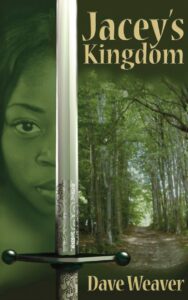
Dave. I take ‘quirks and foibles’ from my own life, plenty of material there, and from imagining how normal people would react in abnormal situations. I like to people-watch a bit too.
Leslie: Which authors have inspired you and why?
Dave: The three authors who have inspired my writing most are Christopher Priest for his sideways view of the nature of time and reality and intricate plotting, J G Ballard for his incredible descriptive writing and sexually psychotic imagery, and Kazuo Ishiguro for his deceptively simple plots which meander and change into almost dreamlike quests into memory; a diffusion of reality until we’re not sure whether what he’s telling us is true or a version of the truth. All these authors play with truth and reality, distorting the past and rendering the present a minefield of unsure assumptions. They leave the reader unsure of exactly where they are or what is happening; surely an exciting condition to be in rather than a plod through the obvious.
Leslie: What would you say are the advantages and disadvantages of using the SF/Fantasy genre?
Dave: Put simply, you may not be taken as seriously writing science fiction as general or ‘artistic’ fiction but you will have some more exciting options and scenarios. Science fiction isn’t all spaceships and star systems; it’s about the inner demons of the mind as well. We are living through science fiction right now; everything is changing so rapidly what was fantasy yesterday is gritty reality we take for granted today. Sci-fi is really just staring into the immediate future and saying ‘what if…’
Leslie: Can you describe what stands out for you at the Fantasy/SF conventions you attend?
Dave: The highlight of any convention I attend is hanging out with the other Elsewhen Press writers; a chance to compare notes and projects and talk to my publishers who are lovely supportive people. We are like a big family; maybe something rather rare in the competitive field of publishing, although I feel most small presses are naturally helpful and friendly to their authors. After all, they need each other.
Leslie: Do you plan everything out on paper beforehand, start writing and adjust things later, or build a novel in a different way?
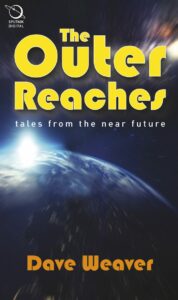
Dave: I have an idea, a concept for a story with a theme that interests me. I find a central protagonist to carry me through the plot, someone I can trick and deceive but who will do things their own way and make decisions I wouldn’t expect. I imagine a starting scene, usually an action one; and an end where the story finds a satisfactory or at least logical conclusion. The rest is just seat of the pants plotting which can be dangerous and messy but is quite fun as you’re not too sure where you’re going next. That’s when the characters you’ve already created jump in to give you a hand. Hopefully.
Leslie: You write to enjoy yourself. How do you maintain a positive, upbeat relationship to what is, after all, a lot of hard work? What rewards and motivates you as a writer?
Dave: I don’t always enjoy the slog of writing a novel but I like the discipline of having to get something down on paper regularly. Short story writing can be quick and exciting but novels are like digging the garden; hard work at regular intervals but ultimately very rewarding. With additional joyous moments of blind inspiration thrown in for good measure. Whatever discipline, I’m always going to write. There’s no pressure but that which I put on myself.
Next week I interview musician and sound healer Clare Hedin who uses energy awareness, connection and deep listening to explore the nature of being.
ABOUT LESLIE TATE’S BOOKS:

Part 2 of my interview with Mark Statman looks closely at Mark’s Latin American poetic influences, his life in Mexico and ends with an extract

I interviewed international poet and translator Mark Statman about Volverse/Volver, his 14th published collection. Mark, who has won national arts awards, is Emeritus Professor of Literary

I interviewed Lisa Dart, finalist in the Grolier, Aesthetica and Troubadour Poetry Prizes and author of The Linguistics of Light (poems, Salt, 2008), Fathom (prose

I interviewed writer Julia Lee Barclay-Morton about her experience of autism. Julia began as an experimental dramatist in New York, moving to the UK to

I interviewed Gillean McDougall from Glasgow, who edited the collaborative projects Honest Error (on Charles Rennie Mackintosh and his wife Margaret Macdonald) and Writing the
| Cookie | Duration | Description |
|---|---|---|
| cookielawinfo-checkbox-analytics | 11 months | This cookie is set by GDPR Cookie Consent plugin. The cookie is used to store the user consent for the cookies in the category "Analytics". |
| cookielawinfo-checkbox-functional | 11 months | The cookie is set by GDPR cookie consent to record the user consent for the cookies in the category "Functional". |
| cookielawinfo-checkbox-necessary | 11 months | This cookie is set by GDPR Cookie Consent plugin. The cookies is used to store the user consent for the cookies in the category "Necessary". |
| cookielawinfo-checkbox-others | 11 months | This cookie is set by GDPR Cookie Consent plugin. The cookie is used to store the user consent for the cookies in the category "Other. |
| cookielawinfo-checkbox-performance | 11 months | This cookie is set by GDPR Cookie Consent plugin. The cookie is used to store the user consent for the cookies in the category "Performance". |
| viewed_cookie_policy | 11 months | The cookie is set by the GDPR Cookie Consent plugin and is used to store whether or not user has consented to the use of cookies. It does not store any personal data. |